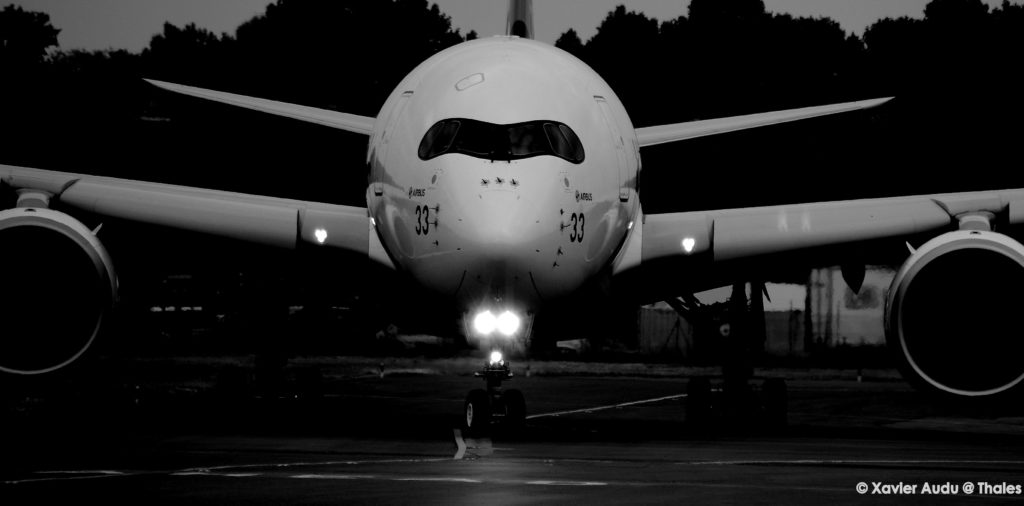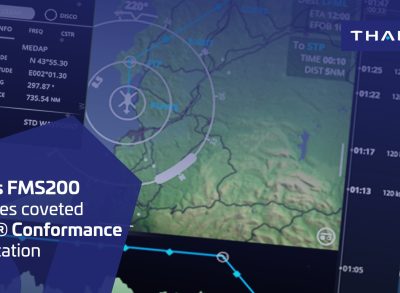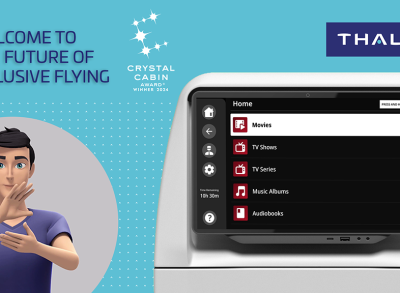Flight Management Systems: the next generation
From navigation and flight planning to performance prediction and flight path optimisation, Flight Management Systems play a key role in the cockpit and beyond. The new generation of interactive Flight Management System solutions from Thales is designed to evolve in line with requirements, providing pilots and operators a combination of flexibility and performance that will be critical to air transport safety and efficiency as traffic volumes grow.

As the operational needs of commercial airliners and business aircraft evolve, and as traffic volumes grow, air traffic management systems need to interact more closely with flight crews. Greater connectivity between the ground and the aircraft provides an unprecedented level of flexibility, making it possible to optimise flight paths in real time while minimising the flight's environmental footprint.
In today's fiercely competitive market, where airlines are under constant pressure to push down costs, pilots have a bigger role than ever in the flight management process.
A whole new set of capabilities
Leveraging a proven record of success in cockpit and avionics solutions, the new-generation, interactive FMS from Thales offers pilots and controllers a whole new set of capabilities while continuing to enhance air transport safety and efficiency.
Thales's new-generation FMS solution is flexible enough to meet all the current and future needs of operators and pilots. Built around an innovative open architecture, it is easy to integrate into new or existing cockpit configurations. It supports virtually any third-party application and software can be updated or replaced quickly, reliably and cost-effectively.
Thales has invested heavily in research and development to deliver this mature, state-of-the art solution. At the same time, we are a major player on cooperative programmes in Europe and the United States, helping to shape the future of the air transport sector through our contributions to the SESAR, CleanSky and NextGen initiatives. With the gate-to-gate concept, for example, data from airport operators, air navigation services and onboard Flight Management Systems are correlated to build a comprehensive representation of the overall mission, enabling flight crews to optimise their flight from boarding gate to landing gate.
The latest take-off procedures optimise an aircraft's take-off and climb profiles to reduce CO2 emissions and keep noise disturbances to a minimum for local residents. Flight paths are calculated in stages throughout the flight to ensure that routes match current flying conditions, further reduce fuel consumption and improve the passenger experience.
Greater connectivity opens up new opportunities for pilots and controllers to maximise airspace utilisation by maintaining the spacing between aircraft or reducing longitudinal separation during altitude changes. Similarly, new procedures such as continuous descent approaches can reduce fuel consumption by 10 to 15% compared to the traditional step-down arrival pattern.
With more than 2,700 aircraft equipped to date, Thales Flight Management Systems have clocked up more than 50 million flight hours. We are proud to be playing a leadership role in the next generation of FMS solutions to support a safer, more efficient and more environmentally responsible global air transport system.
Find us on Twitter @thales_avionics and on our official Youtube channel Onboard TV.




